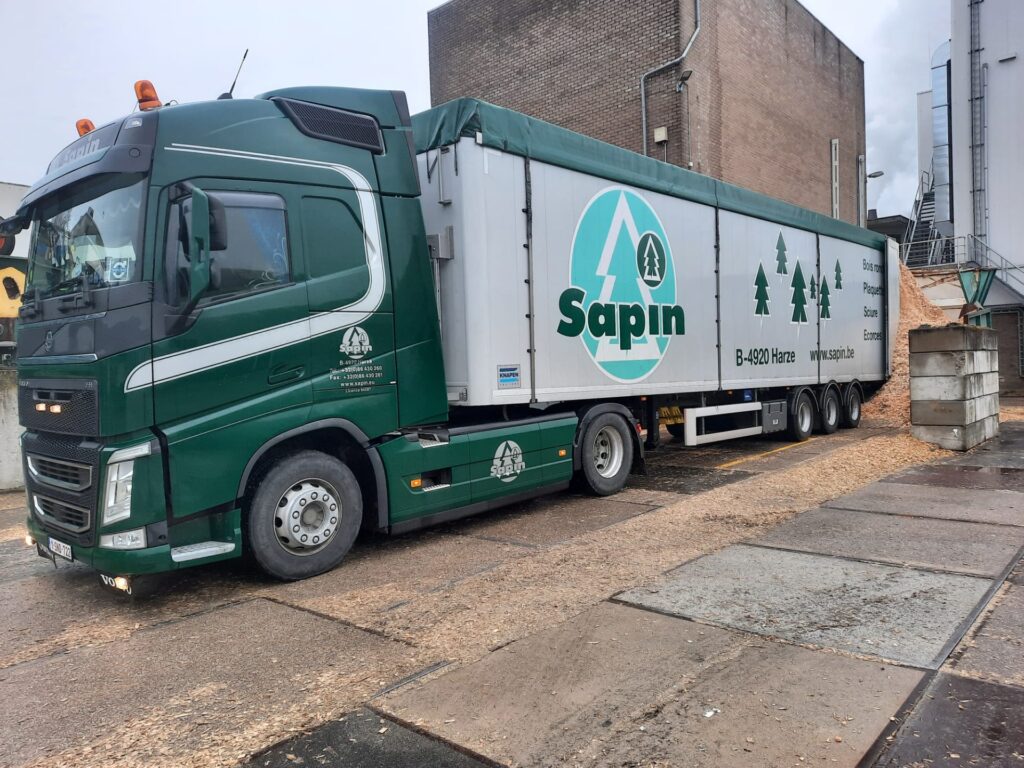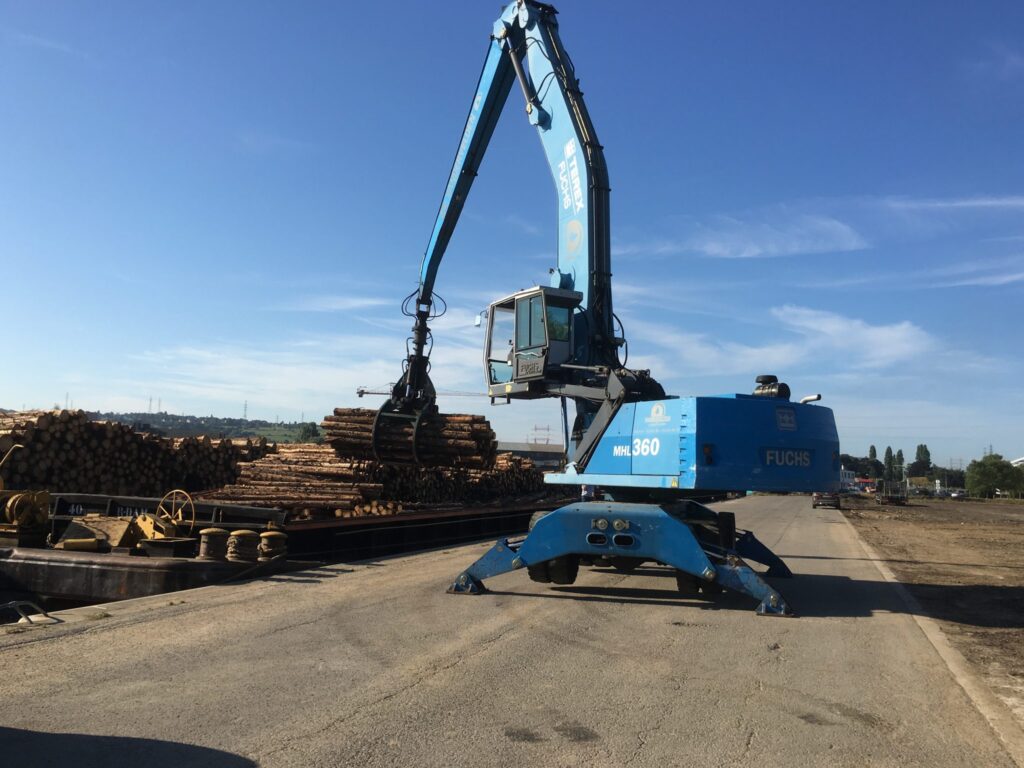Wood, biomass and how transparency in collaboration can lead to a greener future
Sapin’s partnership with Sofidel places them as equal parts supplier and consultant in the bid to further boost biomass and the sustainable sourcing of raw materials
‘Mighty oaks grow from little acorns’, so the old adage goes. And now more than ever, organizations’ global responsibility is to ensure that this cycle continues. For manufacturers such as Sofidel who are aiming to ensure they are driving sustainability as effectively as possible, this could also mean calling in the experts.
Enter Sapin. Since 1986, the Belgium-based company Sapin (‘sapin’ = spruce) has been purchasing and supplying wood for paper mills, sawmills and pulp mills. The aim is to extract maximum value from the wood, taking the biggest pieces for sawlogs, then paper, panels, biomass and pellets. Minimal wastage and sourced responsibly.
“Wood is not a box, it’s something in nature,” says Fabrice Mergeai, managing director at Sapin. “Sometimes a windblow; sometimes there’s a disease in the forest. We understand these factors and we work with foresters. We’re a small-team company but we do a lot and we are active every day locally and all over Europe.”
It may be small, but its roots stretch far and wide across Europe. The past decade has seen it brought under the umbrella of Sappi Group – a leading global provider of everyday materials made from woodfibre-based renewable resources – and its reach has expanded to Iberia, the UK, Scandinavia and the Baltics.

From root to branch
Since 2014, Sapin has been in active collaboration with Sofidel. Two companies with sustainability and sustainable development at the top of their respective agendas. And when working together, these values touch operations from top to bottom.
“Sustainability is nothing new for us – it has always been on our minds,” explains Mergeai. “We are not there just as a supplier of goods, we are there firstly as a highly knowledgeable company to support businesses in their projects, to give advice, to make business plans for sourcing.” And sourcing is, naturally, where it all begins. “Suppliers are even more of our focus than customers,” Mergeai adds. “And we regulate everything.”
Sapin was the first Belgian company to attain PEFCTM (Programme for the Endorsement of Forest Certification). It also holds DFC (Deforestation and Conversion Free) and CoC (Chain of Custody) certification – all with the goal of contributing to the sustainable and low-carbon future set out in the Paris Agreement on climate change (2015). Not to mention its involvement with the shareholders in 80 ongoing decarbonization projects across Europe and a continued quest to find new ways of reducing CO2 output. For example, a recent area of interest is research into the viability of using electric trucks for its road freight.
Highly regulated and with a broad scope, true change can only be attained through collaboration. Sapin’s relationship with Sofidel acts as practically a mutual consultancy – a transfer of knowledge between supplier and manufacturer in how to better source raw materials in an effort to reduce the impact on natural capital and protect the planet.
Next on the roadmap for Sapin is to attain SBP (Sustainable Biomass Program) certification. The certification is not yet obligatory, but Sapin recognizes its increasing importance as biomass gains social, economic and political prominence.

Critical biomass
Biomass is a renewable energy source generated by burning wood and other organic matter. According to the U.S. Energy Information Administration (EIA), it was the largest source of total U.S. energy consumption until the mid-1880s, when the use of fossil fuels – coal, petroleum and natural gas – took over.
Now, as an ever-replenishing resource, it forms a vital cog in the move away from those fossil fuels in line with Goal 7 of the United Nation (UN) Sustainable Development Goals (SDGs). And as the energy crisis struck in 2022, biomass became a hot-topic alternative energy solution among European manufacturers.
Sapin is heavily involved in supporting the production of biomass energy. For example, Sapin is the exclusive biomass supplier at Sofidel’s Frouard tissue paper production plant outside Nancy, France.
But it’s not a simple one-size-fits-all solution. “We’ve seen companies who just want to have a biomass boiler but they have no knowledge about wood, about forests,” says Mergeai. “We bring this knowledge and information. If you want sustainability, you also have to source green.”
A greener future
For Sapin and Sofidel, collaboration for a cleaner, greener, more sustainable future in manufacturing is built on transparency. “The collaboration is quite unique, I think,” says Mergeai. “Sapin is like a wood department within Sofidel, but external. We give advice to the French mill but also to the head office.”
“It’s really transparent – even financially transparent. That’s how you build a long-term partnership,” he adds. Regular discussions about the market, possible improvements, future ventures and related regulation have helped align the two companies’ visions to reduce the environmental impact of manufacturing.
“For me, I’ve seen that Sofidel is really concerned with what’s happening globally,” concludes Mergeai. “You have companies with concerns and companies taking actions. Sofidel takes actions.”
About Sapin
Sapin, owned by the Sappi group is trading roundwood and woodchips destined for paper mills, sawmills and bio-energy plants within Europe. Sapin has a multi functional team with trusted experience in harvesting management, purchase and sale of wood and multimodal transportation.
About Viken AT Market
Viken AT Market AS is a Norwegian trading company for roundwood and woodchips mainly for exports.
The company is owned 50/50 by Viken Skog and AT Skog, two of the leading forest
cooperatives in Norway. Viken AT Market has taken a strong position in the wood trading market, and is a major supplier to forest industries in Scandinavia, Baltics and Northern Europe.